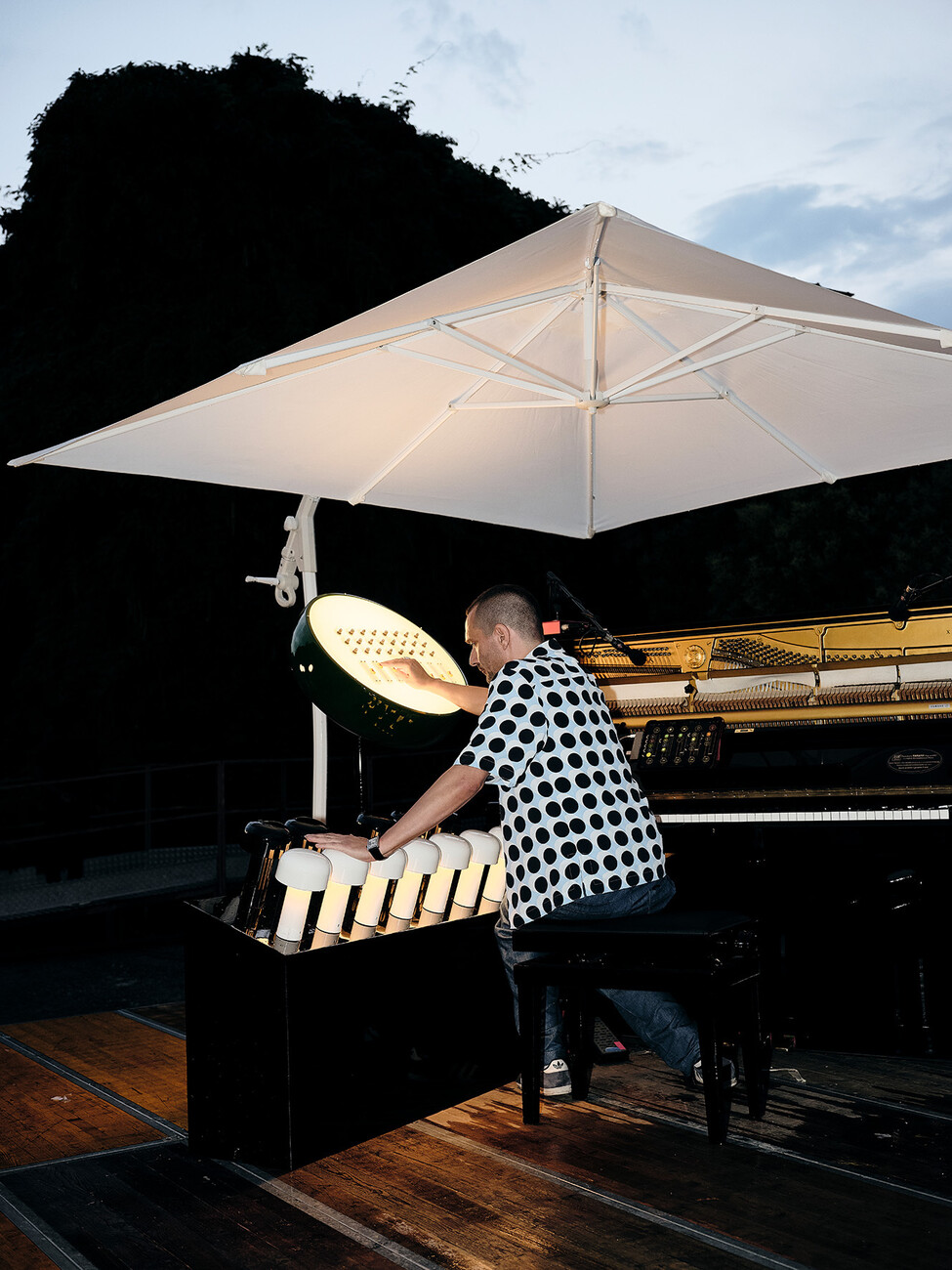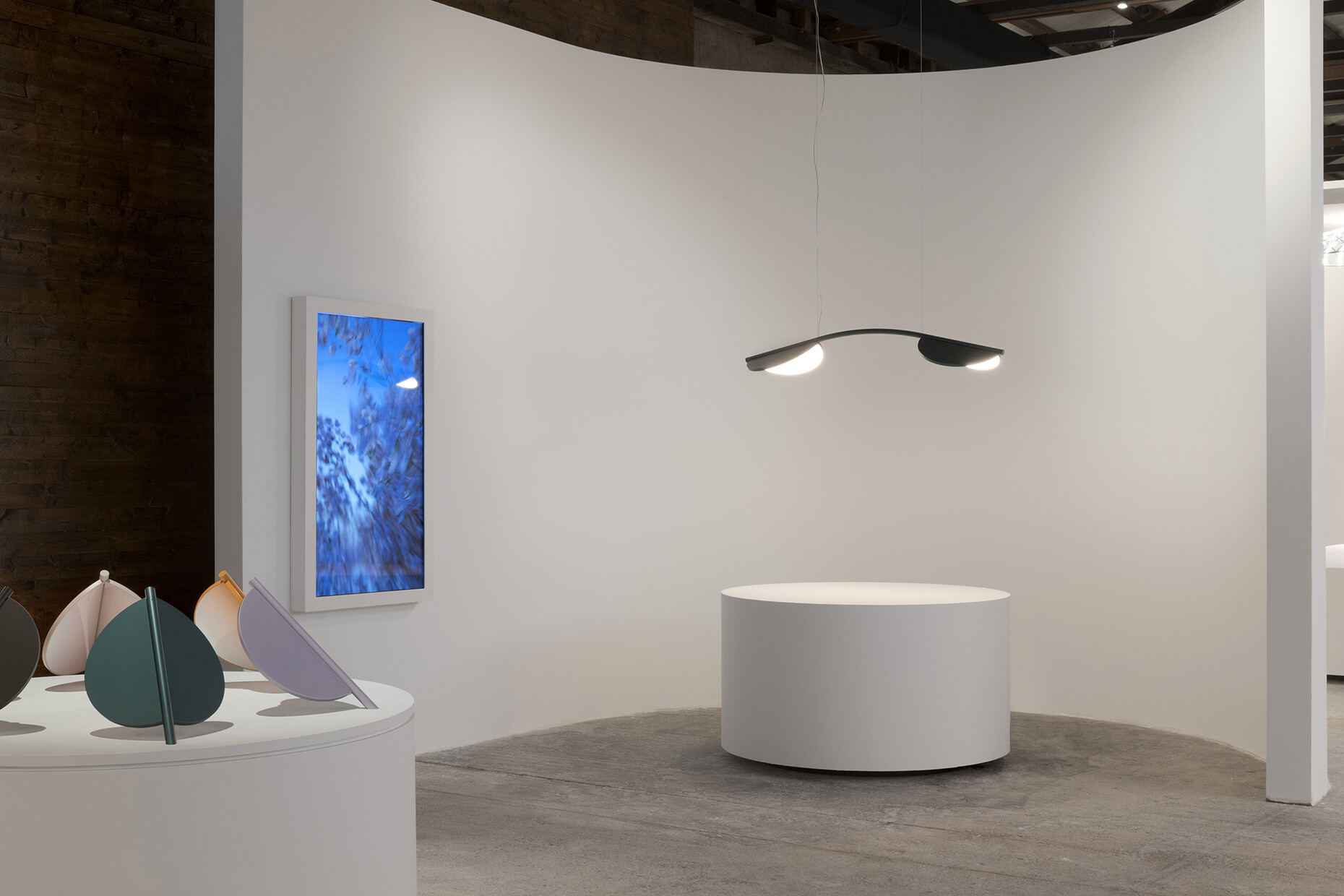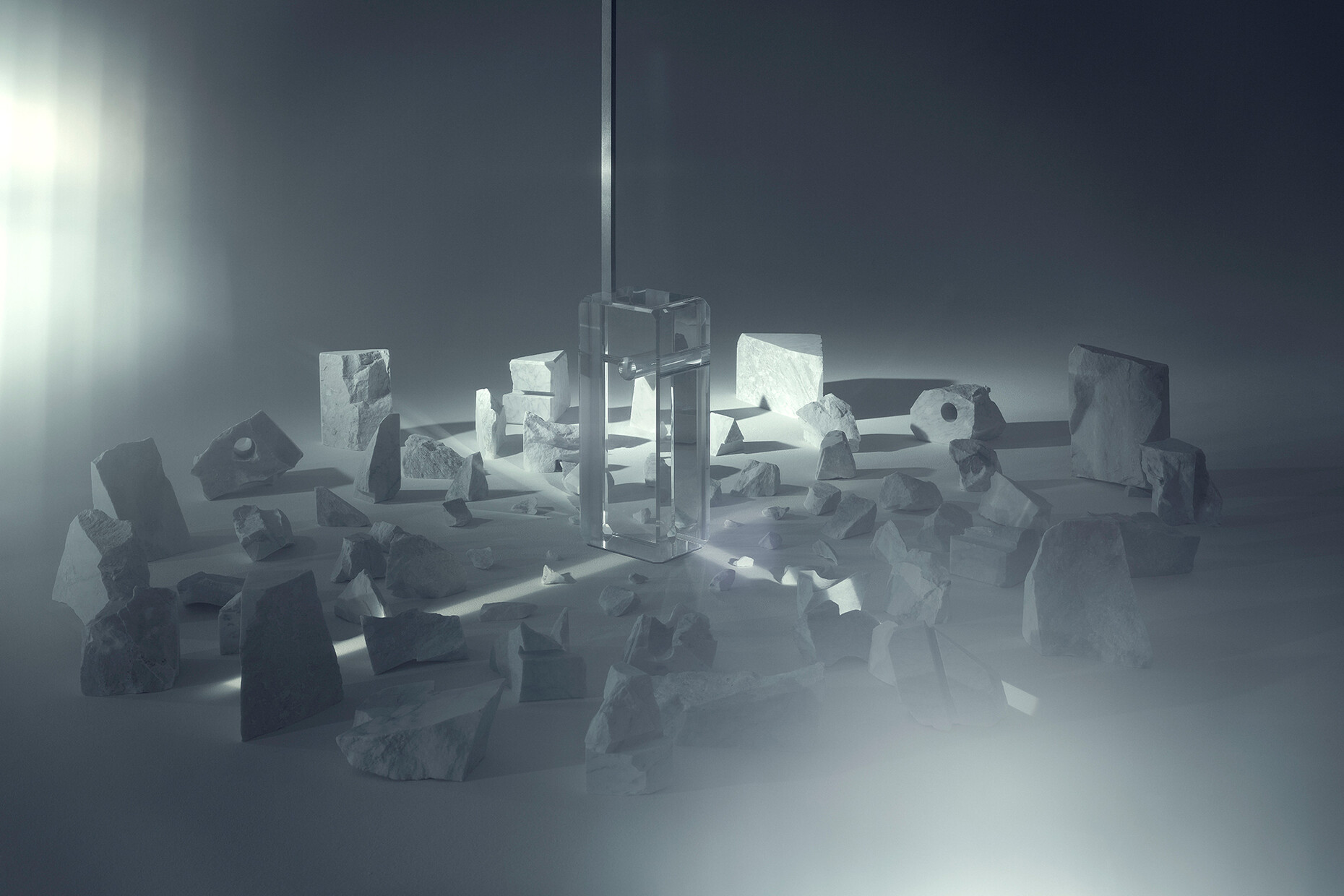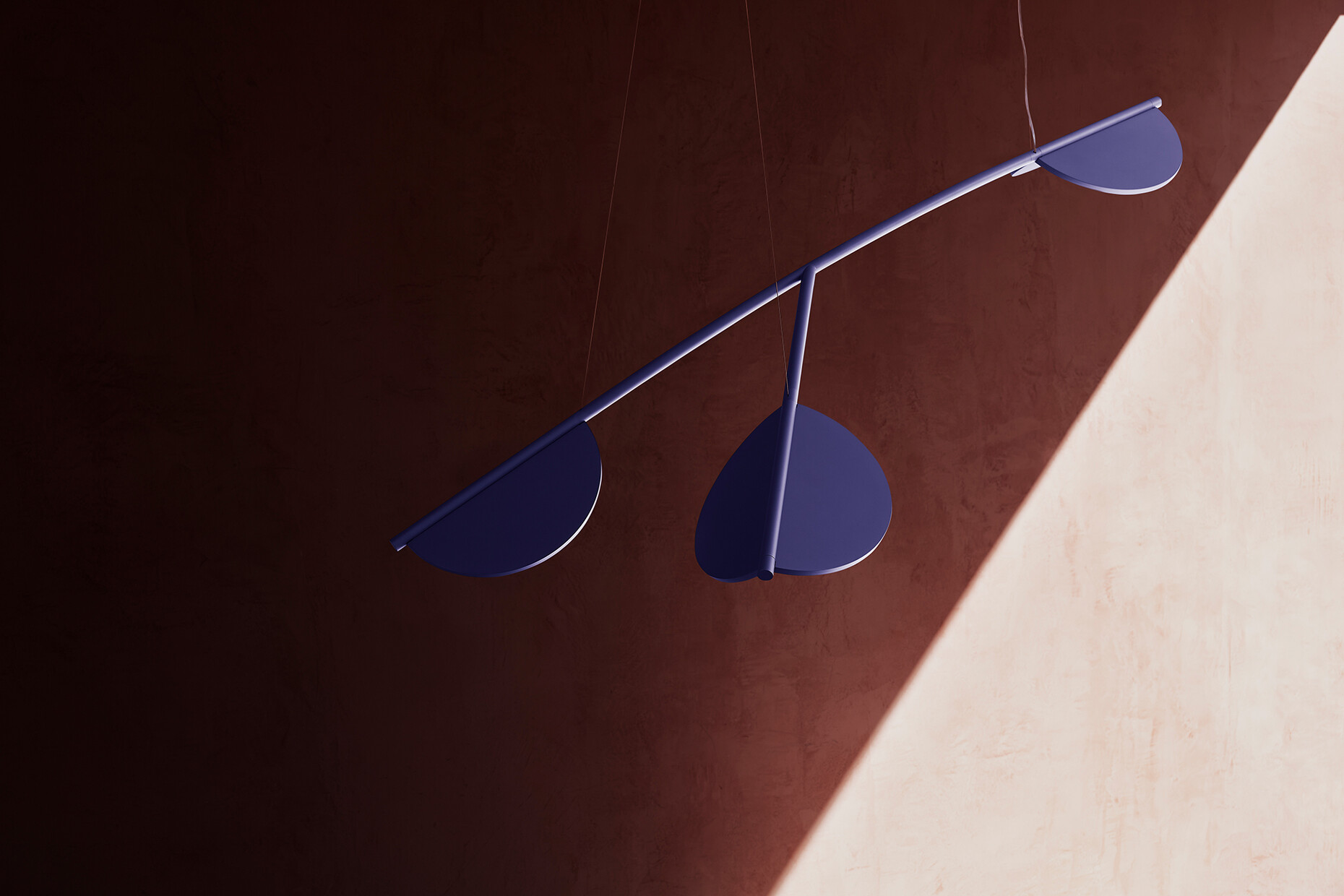Featured
Looking Ahead
Robert Volhard: Flos has been developing and marketing luminaires for 60 years, many of which are now design icons.
Roberta Silva: Yes, I have a great legacy to protect.
Robert Volhard: How do you take such a legacy into the future?
Roberta Silva: When we started thinking about the history of Flos and how we want to celebrate our 60th anniversary, we first talked about it with our Design Curators Fabio Calvi and Paolo Brambilla and with Barbara Corti, our Head of International Marketing. A usual approach is to publish a book about the history of a company, but my point of view was "No, let's look at the next 60 years. What will Flos be in the future?". And that's exactly what we did in the form of an exhibition at Fabbrica Orobia during the FuoriSalone 2022 in Milan. The exhibition was 6,000 square metres in size – 3,000 indoors and 3,000 outdoors.
Franziska von Schumann: What was the concept behind the exhibition?
Roberta Silva: We transformed Fabbrica Orobia's former industrial spaces into a kind of multi-experiential hub, in which we wanted to take visitors on an immersive journey into the brand's design universe and vision for the future. We called it "See The Stars Again" in reference to Dante Alighieri. In the first part of his Divine Comedy the poet sees the stars after emerging from the underworld, which symbolise both hope and the future for him. We therefore created a new place of interaction in the Fabbrica Orobia, which also included a restaurant, a bar and a bookshop. We also held a four-day series of talks called "Hosting", where we discussed certain questions about the future with various experts. There was a bit of excitement at the beginning because we moved out of Salone del Mobile's design area – but people still actually came by and really enjoyed the time they spent with us.
Robert Volhard: You showed a limited edition of your iconic Arco lamp at the exhibition, thus addressing the issue of Flos' great legacy.
Roberta Silva: Yes, that light was designed by the Castiglioni brothers, and is a child of its time. The social and cultural revolution that took place at the time are reflected in it. For the light's 60th anniversary we therefore have created a Limited Edition of 2022 pieces: "Arco K". Instead of the usual marble base, this one has a base made of a special lead-free crystal, which, thanks to its transparency reveals the mechanics of the lamp, and explains its principle and how it works. But of course we also exhibited new collections as well, such as "Almendra" by Patricia Urquiola, “Luce Orizzontale” and "Belt Fabric" by Ronan and Erwan Bouroullec, "My Circuit" by Michael Anastassiades, "Gustave" by Vincent Van Duysen, “Skynest” by Marcel Wanders Studio and many more.
Franziska von Schumann: You previously worked in consumer electronics and thus in a different industry. How difficult was it transitioning to the world of furniture design?
Roberta Silva: I originally started my career in the food industry and worked there for 20 years. That was a very exciting and multifaceted job. But since I'm a curious person, I became interested in a different industry and switched to consumer electronics, even though I had no experience in the field. The change was interesting, among other things, because in the new position I moved up to a global level and had responsibility for international business. At the end of the day, it's always about emotions, no matter if you work in food, consumer electronics or design – you have to develop a sensitivity for the needs of your clients. The problem with the design industry, in my opinion, is that in the past it was too focused on the product. That's why at Flos we're currently working to establish stronger customer orientation.
Franziska von Schumann: Does this also mean that the brand is to be changed to appeal to younger customers?
Roberta Silva: Well, first of all you have to understand the company's legacy in order to address the needs of a new era. And I also think Flos was perhaps a little too intellectual and aloof in the past, which is why we tended to address an older generation. But now our target group includes the Millennials and increasingly Generation Z – young people who are pursuing new models of life. They lead global lives and want to find this lifestyle in the form of design, everywhere, whether at home, in the office or in a hotel. We really want to adapt our product development to this new situation.
Robert Volhard: What does implementation of these ideas look like in concrete terms?
Roberta Silva: We're working on many new products and have a lot planned for the next three years. To this end, we're cooperating with various designers who are able to think in a new direction – such as Konstantin Grcic. We're currently developing a new product with him that will be launched next year, and we want to bring design, technology and sustainability together in a new way. And we already presented "Skynest" by Marcel Wanders Studio in the Fabbrica Orobia this year. This is an ornamental pendant lamp that has an almost hypnotic effect. The special thing about "Skynest" is that its light is not produced by a light bulb or an LED circuit board, but by the elements that form the structure of the lampshade, i.e., LED strips covered with recycled fabric.
Franziska von Schumann: How does your collaboration with designers come about and how do they develop new products?
Roberta Silva: At our exhibition at Fabbrica Orobia, for example, we had some new designers as guests so we could get to know each other. We now meet with them regularly to better understand their approach. One example is the young Italian artist and designer Guglielmo Poletti, whom we've collaborated with for the first time and who has now designed the "To-Tie" series of lamps for us. The whole thing is like a ping-pong game: You have an idea while we have the corresponding resources and sometimes something magical develops out of it. There are many projects that are put on ice for a long time because we haven't quite found the right way forward yet. And sometimes, for example with the Konstantin Grcic project, it starts in a certain way and then turns into something completely different. There are these moments in concept development where you suddenly realise that the product is born. Then you have to keep moving on and fine-tune it. But you know that in the end there will be a product, which will provide customers with added value.
Robert Volhard: We can remember a time when Flos presented products at trade fairs that then never went into production. We always wondered why you would go to such lengths, when ultimately people were only going to be disappointed. It seems that you've now changed the internal processes at Flos in this respect.
Roberta Silva: First of all, we changed our internal communication. When I started at Flos, the research and development department worked in complete isolation. We have transformed the full process, and the whole company is now involved in the most crucial steps for a design company. In the past, functions were living in silos, resulting in long, slow processes, at the end of which there were often unfinished products that couldn't be manufactured. This was very frustrating for the designers, and anything but economical or sustainable. Sometimes our prototypes were also copied in China because we had presented them at a trade fair and then it simply took too long to get the product ready for the market. Another issue was that the marketing department often didn't know when a product was ready to go, so there was often no corresponding campaign when it came out. So we've worked together to understand how we can optimise these processes and now our staff all cooperate in an inter-departmental fashion. Now everything starts at the right time, including the selling of our products.
Robert Volhard: With Flos' Outdoor Collection, you've also created a new product line.
Roberta Silva: Yes we have, for example in the form of the "In Vitro" outdoor light collection by Philippe Starck, which we developed for outdoor use. This is really a fantastic product! Every day when I come home, I touch the lamp, because I love sitting next to it on my veranda. There's just something special about it. In general, we've been working intensively with our designers in recent years to develop new product families. These collaborations are an important factor, but we've also developed many patented technologies as well. To do this, we create a tight collaboration among Flos’ several research and development teams all over the world. This is enormously important if you want to provide answers to questions about both the present and the future: This concerns technology as well as design.
Franziska von Schumann: To what extent does this also address the question of the sustainability of your products?
Roberta Silva: This is something that we're working on very intensively. For example, we don't use any glue. All of our products can be dismantled and are made of recyclable materials. We're also looking at the individual components that make up our products, because we're aiming for greater longevity. We are also developing new materials, such as a new bio-plastic made from waste that's generated in the process of making paper. But it's not just about new materials, it's also about the way we produce things. And for this, you have to look at the whole picture in order to develop the company in line with the circular economy. It isn't an easy thing to do at all, but we're working on it.
Franziska von Schumann: You just mentioned the longevity of your products. This also includes good design, which then leads to customers becoming emotionally attached to a product instead of simply throwing it away.
Roberta Silva: Yes, absolutely: Successful design can be sustainable. But it's of no use if the product stops working after a few months. That's why we focus on three central themes: design, technology and sustainability.
Robert Volhard: How do you communicate these issues to the outside world?
Roberta Silva: We're digitalising the company at a very fast pace now, which also affects our communication. When I started at Flos, we still used a lot of catalogues. But do you really still need a catalogue nowadays, especially since it eats up a lot of resources? Digitalisation allows us to present our products in shorter and more finely tuned time intervals. And at the same time, we can talk about them in the form of a different narrative that is less about product presentation and more about a background story. However, digitalisation not only affects our communication, but also our business model, as now, for example, many online retailers also have a kind of Flos shop. E-commerce is fundamentally changing sales.
Franziska von Schumann: You initiated all these processes of change in the middle of the corona pandemic. And then the war in Ukraine started. What influence do these crises have on the reorientation you started at Flos?
Roberta Silva: I started working at Flos in June 2019 and immediately travelled a lot in order to build up a network. This allowed me to form important connections even before the pandemic started. But basically, dealing with crises is about resilience: You have to be resilient. And we've grown a lot during the pandemic, which is mainly due to increased demand in the interior design sector. But we certainly find the war in Ukraine and the looming energy crisis unsettling – and yet there's always a way to face certain problems. It was the same at the beginning of the pandemic: At first you're worried, but then you start to understand the situation better and develop solutions. In every crisis there's also the chance for a new beginning.
































































